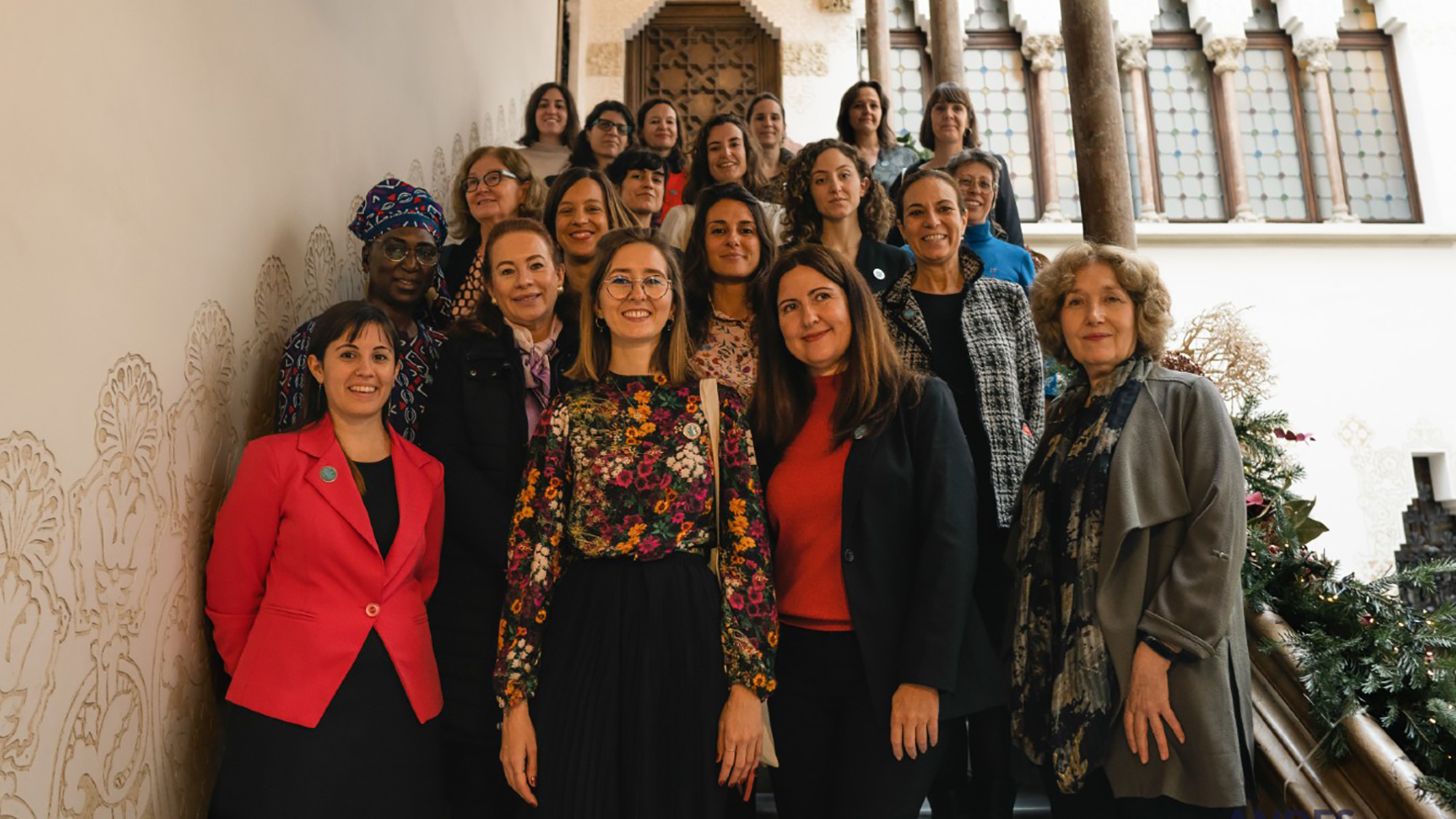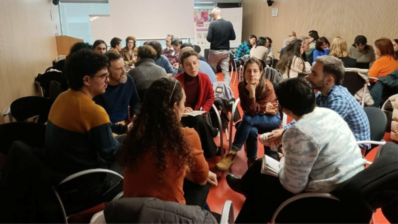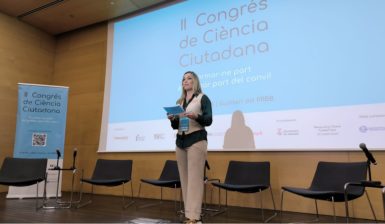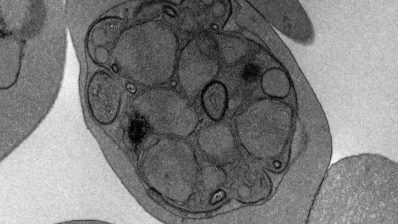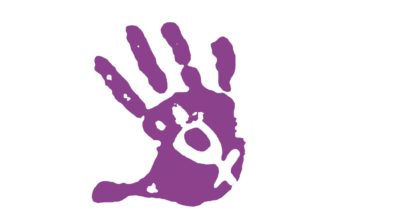Last December saw the official inauguration of the Spanish chapter of Women in Global Health, an international non-profit organization that promotes gender equity in global health: both at the level of leadership as well as for patients and healthcare professionals.
Researchers from the Barcelona Institute for Global Health (ISGlobal) have been behind this initiative at the national level. Neus Rosell and Rosa Orriols are currently president and vice-president of WGH Spain, respectively,. In this post they explain why it was necessary to create WGH Spain and to push for an intersectional, holistic and multidisciplinary feminist perspective on health.
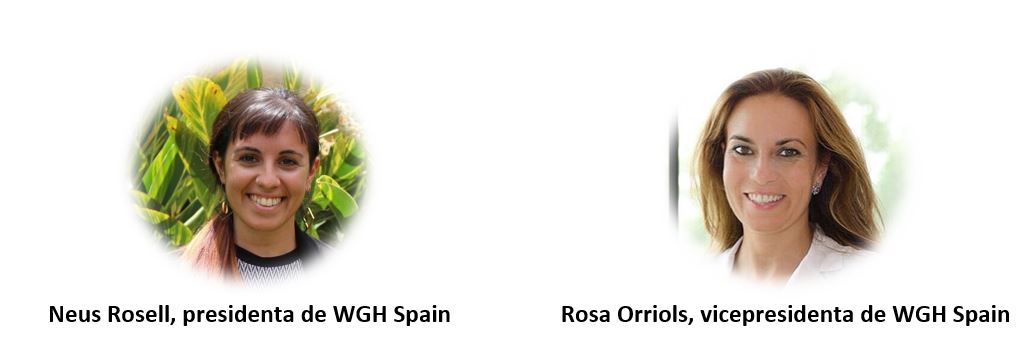
Despite advances in recent decades, the gender gap in Spain continues to be very noticeable in many aspects, from the lack of women in leadership positions and the salary gap, to the undervaluation of pathology in women in research, education and healthcare, or gender differences related to the social determinants of health.
Leadership gap
According to data from the National Statistics Institute (INE), the healthcare sector in Spain has been largely feminized for years. In 2022, there were 999,000 women compared to 333,000 men. However, there are still limits to women’s rise to positions of power. For example, in 2018, of the 34 public medical campuses in the state, only 4 were headed by a woman. Likewise, in 2021, the presence of women in the Royal Academy of Medicine and the Royal Academy of Pharmacy was 14% and 22%, respectively.
In the health sector, 70% of professionals are women, but they occupy only 25% of leadership positions.
The management of the Covid-19 pandemic has proven to be a great indicator of the problem of the lack of women in leadership positions in the health field; or rather, of the systematic appropriation of this leadership by men. Whenever there is a crisis, men take control and displace women from places of responsibility and decision-making. In this sense, there has also been a lack of women experts explaining their point of view in the media, as if there were no female epidemiologists, virologists, researchers or scientists in general.
Wage gap
Although the purchasing power of women working in health activities and social services has improved, according to INE data in 2020, they earned an average of 10,290 euros less than men. Added to this, there are approximately 5 million women in Spain who work as unpaid caregivers. This is an essential job for society, traditionally assigned to women (8 out of 10 non-professional caregivers in Spain are women), invisible to others, and with great psychosocial burdens for the caregiver.
Undervaluation of women’s health
Likewise, healthcare professionals are not adequately prepared to detect gender biases in clinical practice, which can drag on for decades and involve the undervaluation of pathology in women or the valuation of women solely as reproductive beings. Some examples include the normalization of anemia and adverse symptoms related to menstruation or the minimization of chronic pathology affecting women, such as fatigue and pain, which could explain the overdiagnosis of depressive syndrome and polypharmacy in women compared to men at the national level. In addition, it is still a taboo for patients and professionals in the Spanish public health system to address health issues that are important for women’s quality of life, such as sexual health, dyspareunia or pelvic floor dysfunction and the appearance of postpartum varicose veins.
All these situations of inequality, among other reasons, have pushed us to create the Spanish chapter of Women in Global Health, an international non-profit organization that promotes gender equity in global health. Thus WGH Spain begins its journey working for a feminist, fair and egalitarian global health and to raise awareness of the existing gender inequality in the health sector, which undermines the rights and welfare of women, weakens health systems and limits quality health care for the entire population.
An initiative for change
WGH was born in 2015 after interaction on social networks from global health professionals who wondered why, although women are the labor muscle of the healthcare sector (70%), they represent a minority of leadership positions in the sector (25%). Since then, WGH has been working to achieve gender-transformative leadership in healthcare institutions, as well as gender equity for both patients and healthcare professionals. Its strength lies in building a coordinated international movement that today has nearly 5,500 members and 70,000 supporters in more than 90 countries, with a total of 41 chapters in 36 countries (59 more are expected by 2023). As an exponent of its work, WGH signed a collaboration agreement with the World Health Organization in 2021 to ensure that all women working in health are adequately represented in leadership and decision-making spheres.
WGH is made up of 5,500 members and 70,000 collaborators in 36 countries. Since 2020, WGH Spain has brought together 40 people from diverse backgrounds to work at the national level.
In September 2020, a group of researchers and activists, mostly associated with ISGlobal, began to promote the creation of the Spanish chapter of WGH, which was officially recognized by WGH a year later. In WGH Spain we work for global health from an intersectional, holistic and multidisciplinary feminist perspective, considering health in relation to all dimensions of the human being. For this reason, the organization is formed by a team of approximately 40 people with diverse profiles (research, health management, clinical care, journalism, activism, etc.) who share the desire to create a sustainable community for gender justice and equity in global health. Although we have a national focus, we recognize the interconnectedness of today’s world and are committed to improving global health internationally through our work and external partnerships.

